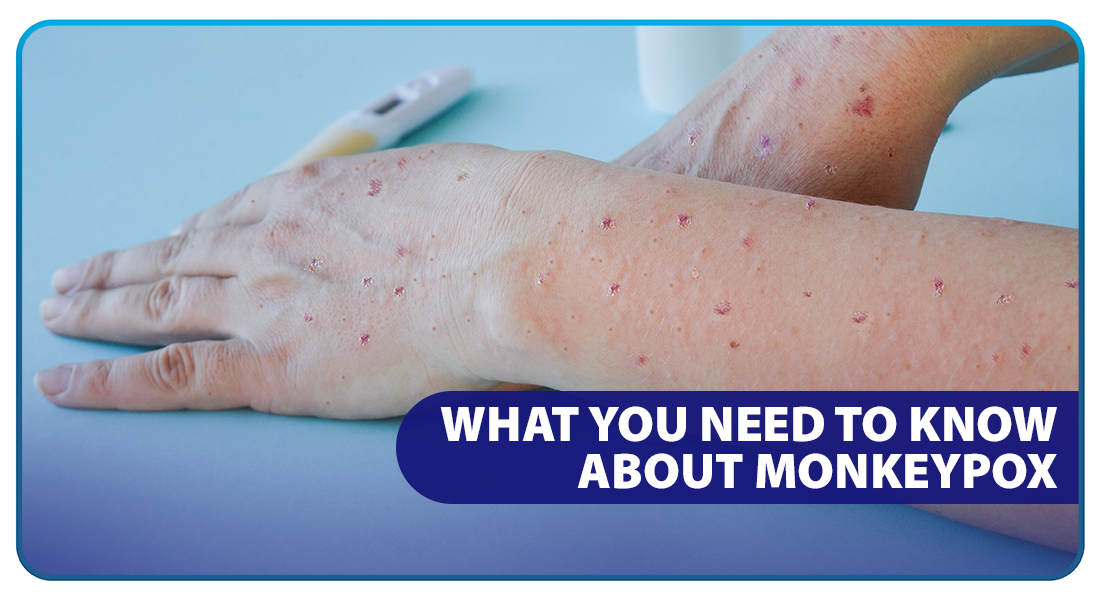Mpox, previously known as monkeypox, is an uncommon disease, but it has recently been getting attention after an outbreak in various countries it is not endemic to. In August 2024, the World Health Organization (WHO) declared mpox to be a global health emergency due to an uptick of cases in the Democratic Republic of the Congo (DRC) and other parts of Africa. Not long after, the Philippines recorded its first mpox case of the year.
Here is what you need to know about mpox—from its symptoms to its transmission.
What is mpox?
According to CDC, mpox—previously called monkeypox—is a rare infectious disease caused by the monkeypox virus. It was first detected in 1958 among monkeys in a laboratory, hence the orignal name. The first recorded case of the virus in humans was in the Democratic Republic of Congo (DRC) in 1970. After this period, mpox has been consistently detected in Central and Western African countries such as Cameroon, the Central African Republic, Cote d’Ivoire, Democratic Republic of Congo, and Nigeria, among others.
In 2022, the World Health Organization (WHO) has officially renamed the disease to mpox in accordance with modern guidelines for naming diseases. The U.S Centers for Disease Control and Prevention (CDC) noted, however, that the virus that causes mpox has retained its original name.
There are two types of monkeypox virus currently known:
- Clade I, which may lead to more severe cases of sickness and death and is endemic to Central Africa
- Clade II, which often causes less severe cases and is endemic to West Africa; this virus type, according to CDC, is what caused the worldwide outbreak in 2022
What are its signs and symptoms?
The symptoms of mpox are comparable to a milder version of smallpox symptoms, which include fever, headache, muscle aches, swollen lymph nodes, exhaustion, and chills. One to three days after the onset of fever, rashes may start to spread throughout the patient’s body. Mpox usually lasts for two to four weeks, but some cases can be more severe in certain members of the population, such as pregnant women, children, and the immunocompromised.
How is mpox transmitted?
Mpox can be contracted through animal-to-human or human-to-human contact. Wild animals, including monkeys and rodents, may carry the virus and transmit it to others. Animal-to-human transmission entails unprotected contact with their blood, bodily fluids, or even their skin or fur. Consuming meat from an infected animal that was not cooked properly may also result to infection. Among humans, it is usually transmitted through close contact with an infected patient, direct contact with body fluids or lesion material, or indirect contact with lesion material, such as through contaminated clothing or linens.
How is mpox treated or prevented?
In 2018, a drug called Tecovirimat was approved by the US FDA as treatment for smallpox and mpox, but it is not widely accessible. The vaccine that eradicated smallpox has been proven effective against mpox as well. This, however, has already been phased out after smallpox was completely eliminated in 1980. At a minimum, WHO advises that the general precautions against COVID-19 should also be effective against mpox transmission, particularly frequent handwashing and social distancing.
According to guidelines set by the Department of Health (DOH), supportive care is recommended for patients with mpox. For mpox patients who are not experiencing any other illnesses, resting at home after getting tested is recommended until all scabs have shed.
If you suspect that you or someone you know has been infected, isolate immediately and avoid gatherings where close contact with others may happen. It is also recommended to consult your doctor for proper diagnosis or treatment.
Sources:




